Published Nov 18, 2021
Watching Star Trek Generations Spoiled
One fan remembers the hype and spoilers surrounding Picard and Kirk's fateful meeting.
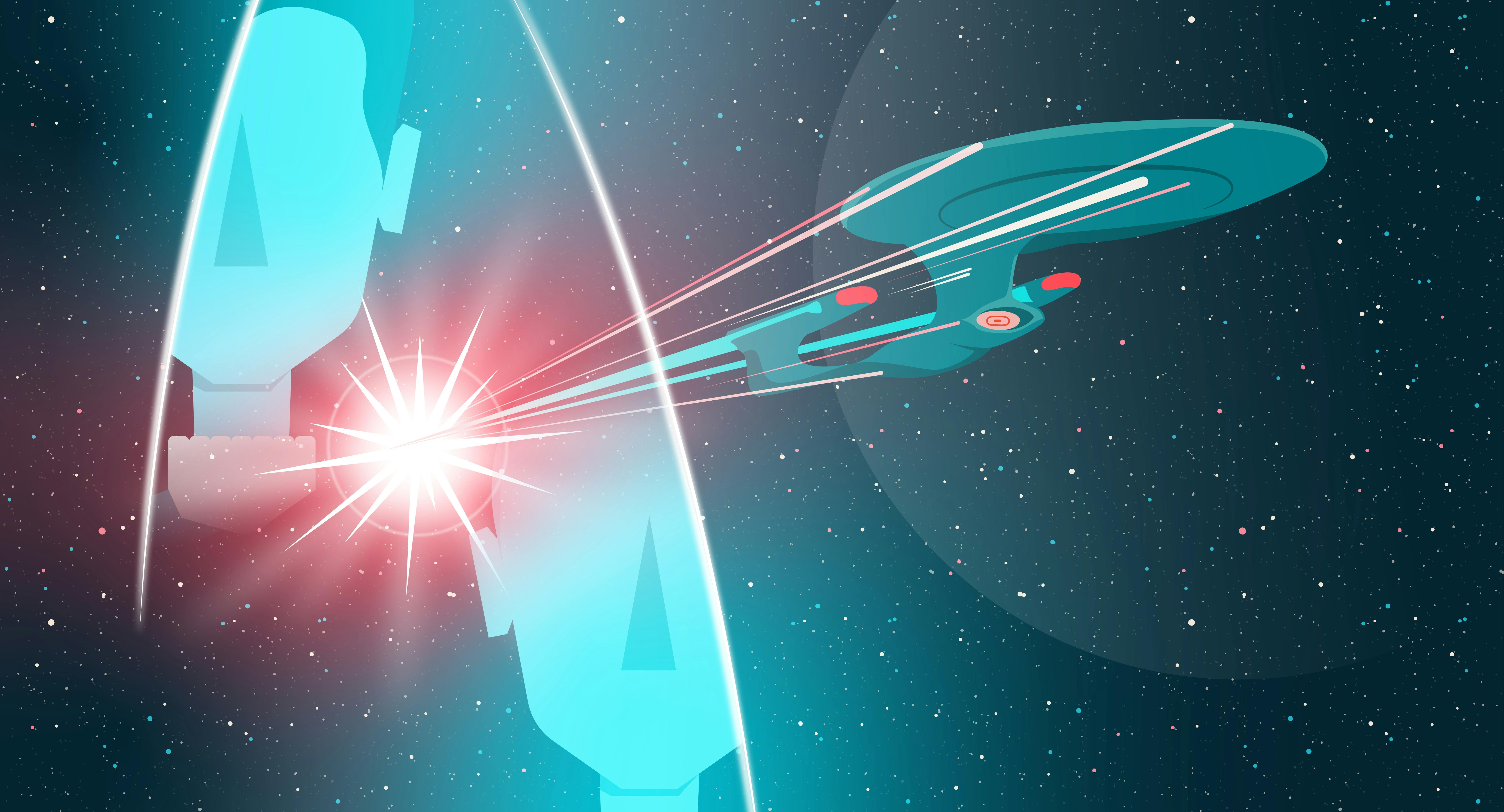
StarTrek.com
This article was originally published on November 18, 2019.
1994 was a great time to be a 12-year-old Star Trek fan. Star Trek: The Next Generation ended on a high note, its warm, satisfying finale pleasing fans and non-fans alike. As a parting gift, “All Good Things...” earned TNG earned its sole Outstanding Drama Series Emmy nomination. With a little reformatting after its first season, Deep Space Nine was pioneering a new type of serialized television storytelling with the introduction of the Dominion and the Defiant, while at the same time details were trickling out about this new thing called Voyager. Almost as importantly for me, that year also saw the first edition of The Star Trek Encyclopedia, a franchise authorized compendium of reference materials that allowed deep, detail-driven dives into all things Trek. Now, when I watched a rerun it was with the Encyclopedia at my side, ready to check any detail.
Finally, there was Star Trek Generations coming that November, the ultimate salve for the sting of TNG’s cancellation. I bought a copy of the TV Guide collectible Farewell to Star Trek: The Next Generation, where the entry for “All Good Things...” (still unaired when it was released) ends with the line “And watch for the crew’s next mission—Star Trek Generations—coming in November to a theater near you.”
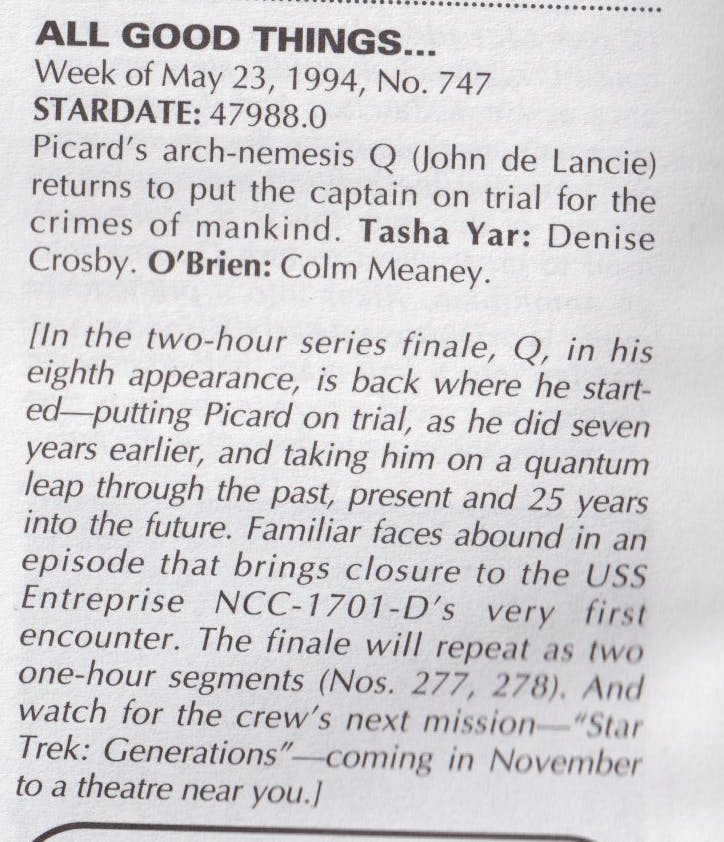
StarTrek.com
Generations not only promised further adventures of the Enterprise-D and its crew, but also to resolve the Kirk-shaped elephant in TNG’s room. For all of TNG’s TOS tie-ins — including appearances by characters like Scotty, Spock and Sarek — Kirk was scarcely even mentioned. The hype for Generations was so explosive that a picture of William Shatner and Patrick Stewart even graced the cover of Time. I’d argue that no Star Trek film reached this level of "cultural event" again until Star Trek (2009).
I’ve come, since then, to share the consensus opinion that Generations is one of Trek’s noble misfires, somewhat botching the unique opportunity to put Kirk and Picard on screen together. A disgruntled Leonard Nimoy would later describeGenerations as “a media event . . . Something to sell . . . But I don’t think the picture was very good.” But this movie was crucial to my personal experience of the franchise, not just as my first Trek film in a theater, not just as the first TNG film, but as the first film I ever followed from its initial announcement in the trades all the way through to its premiere, indulging in the hype (and its collectible paratexts) every step of the way.
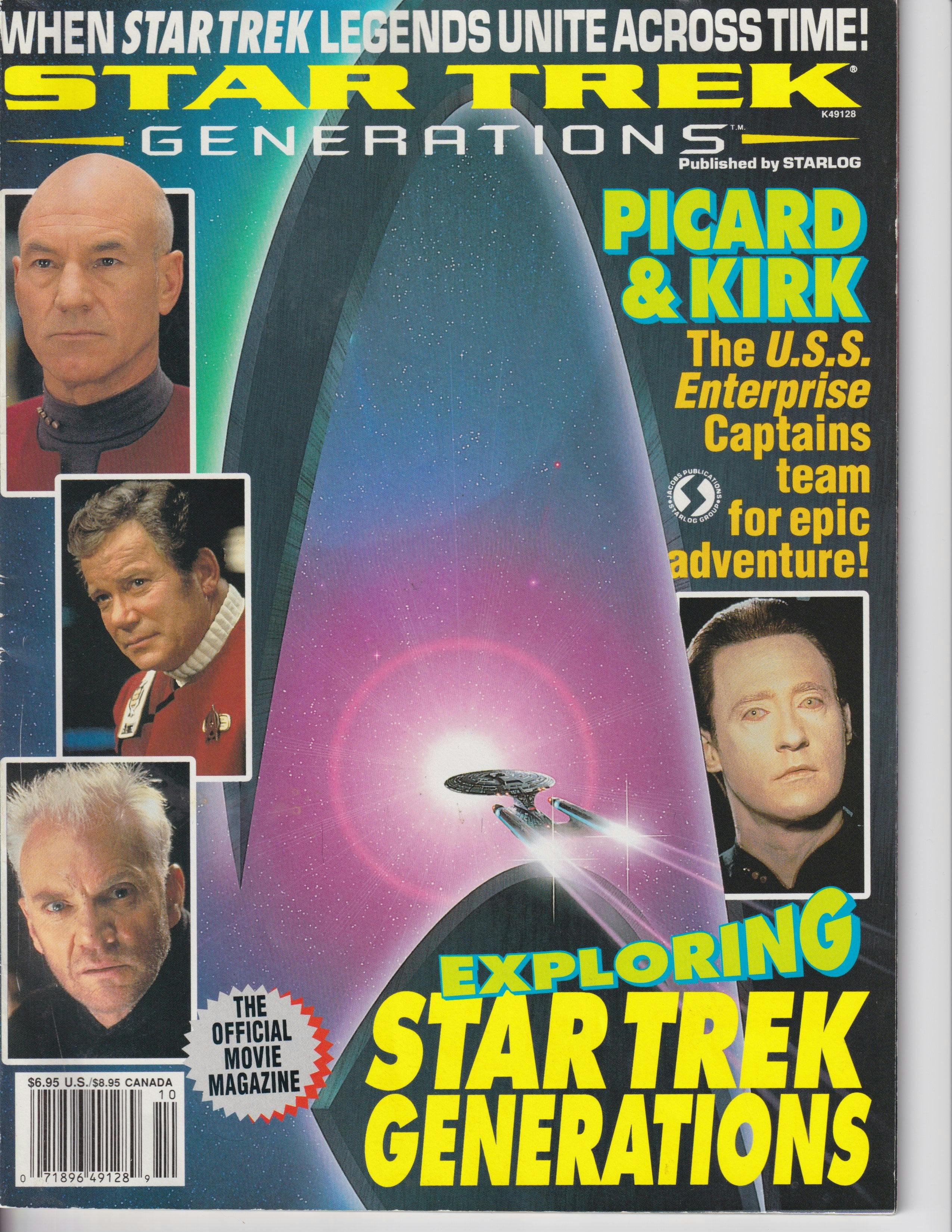
StarTrek.com
On Friday, November 18, my friend Ben and I caught a bus straight from St. Joseph’s Junior High School to the Bankers Hall movie theater in downtown Calgary. The line was long and slow, snaking down several levels of disabled escalators, but then the moment came when we finally got inside, found seats, awaited the dimming of the lights and projector’s glow. Yet, in a sense, I had already experienced Generations. Months earlier, my older brother had handed me a stack of papers held together by a large black paperclip. It was the shooting script for Star Trek Generations.
It’s hard to understate the excitement I felt as I poured through every page. I puzzled over what “VFX” stood for, or what a stage direction like “a grim beat” might mean. I already knew a certain amount of what would happen in Generations: as early as April of that year, Malcolm McDowell told Variety “I get to kill Kirk,” and a list of rumors published in Cinescape magazine mixed accurate (Data gets emotion, the Enterprise-D is destroyed) and inaccurate claims (Dr. Soran is a Vulcan, the Borg are involved). But now, here was everything, all the secrets spilled at once – the keys to the kingdom.
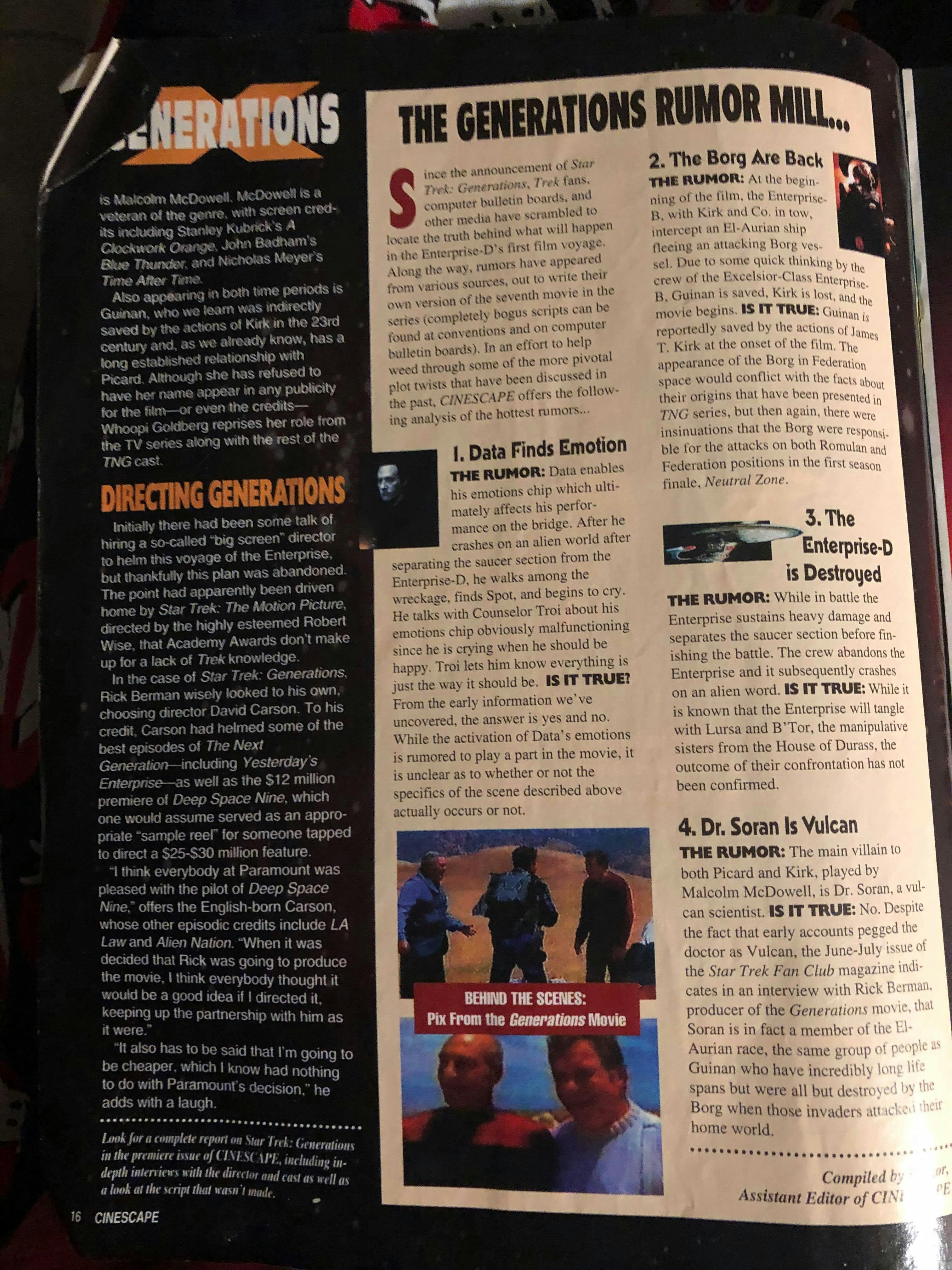
StarTrek.com
From what my brother tells me, he probably downloaded a version of the script distributed on rec.arts.startrek newsgroups by a user named Johan Wevers. To this day you can read the original 1994 conversations where fans discussed the legal ramifications and ethical conundrums those who had downloaded it might find themselves combatting. Some extreme reactions called Wevers a fool whose action was certain to bring down Paramount’s scrutiny on the online fan community that until then had mostly flown under the radar. For what it’s worth, I cannot identify any case of a person being prosecuted over a leaked script (as opposed to an actual leaked film), and the Generations script and many others like it sits to this day on sites like Drew’s Script-O-Rama (which, ironically, still looks like it might have looked in 1994). None of these issues entered my preteen mind, and I dove into the script without a moment’s hesitation.
I don’t believe I knew the word “spoiler” at the time, which was swiftly becoming a feature of online etiquette – do not consciously distribute information that might accidentally hinder someone’s enjoyment of a product. But spoilers are clearly in demand, and are in fact an inextricable part of the fan experience. The valorization of “unspoiled” viewing constructs a sort of pure, virginal experience as authentic and proper, but it is hard to ignore that being “fan-in-the-know” has its joys too. And while the legal department at Paramount and indeed the film’s screenwriters may not have been happy that I was leafing through the Generations script, I can report that it did not prevent me from paying to see the film or enjoying seeing the scenes I had read in script form enacted on the screen. I sacrificed the pleasure of surprise in favor of the pleasure of expertise.
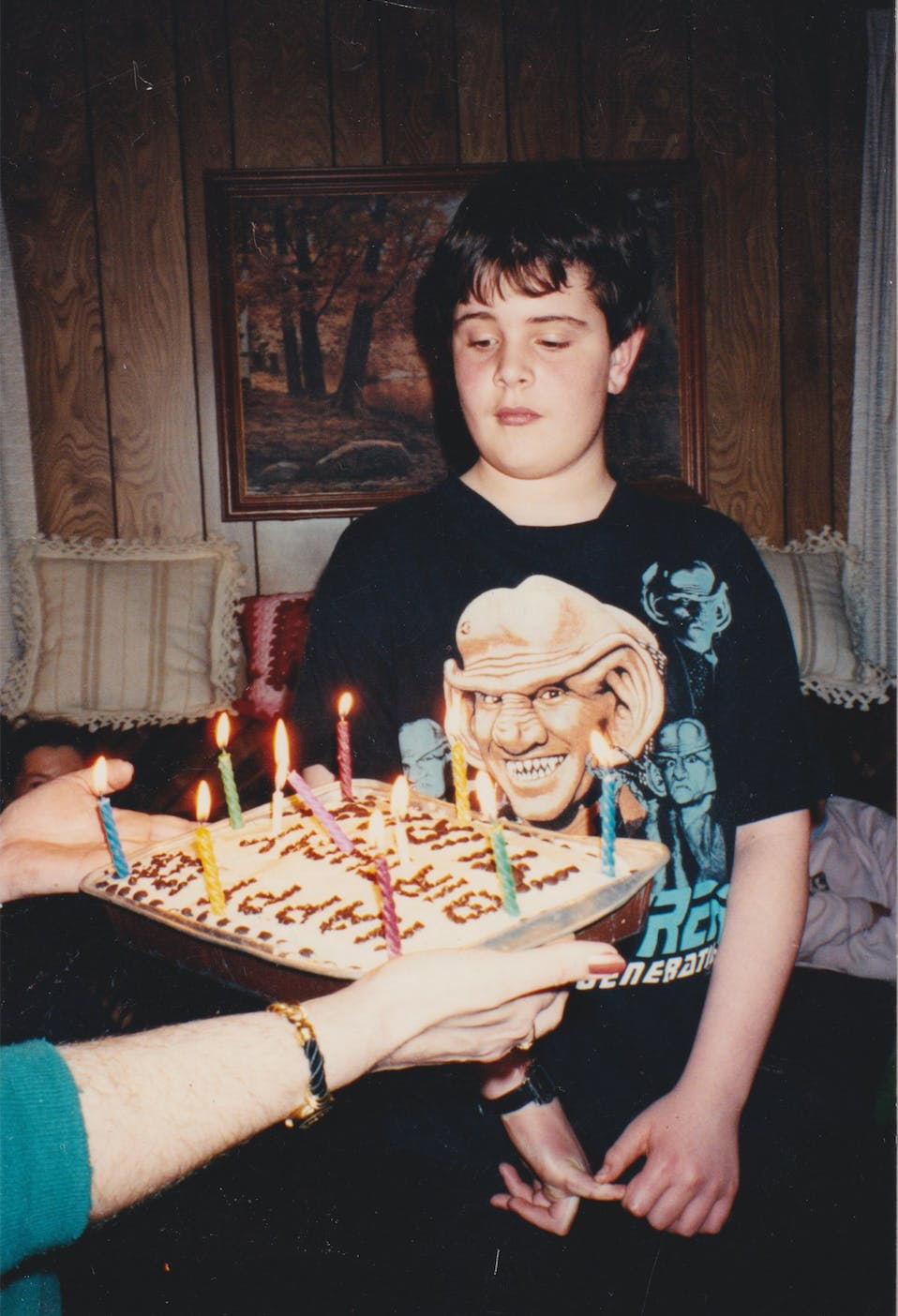
StarTrek.com
In his book Show Sold Separately: Promos, Spoilers, and Other Media Paratexts (2010), Jonathan Gray examines how spoilers help fans navigate their own, individualistic path through the text. This essentially describes my 12-year-old self’s motivation, to not just see the film as another member in a crowded theater but to claim a sense of propriety or even connoisseurship. There were still surprises, of course. Scenes were cut, many of which surfaced as DVD extras. The intro of the champagne bottle in space was no longer intercut with a scene of Kirk skydiving from Earth orbit. Picard’s Nexus children no longer give him an antique sextant as a present. The surface of Veridian III is a desert instead of a jungle. A particularly unpleasant scene where Soran tortures Geordi by stopping his heart was gone, removing the context for Soran’s subsequent line “His heart wasn’t in it.” And then, of course, there was the climax, substantially altered after Soran shooting Kirk in the back tested badly.
There were more minor things too, like a missing line that would have definitively established that Guinan’s “sixth sense” is a consequence of her contact with the Nexus. Or a reference to Deanna having been thrown to holo-lions in a Roman coliseum during her own post-promotion hazing. After getting home from the premiere, I read through the paper script in search of any new detail . . . experiencing the film twice in one day.
In my subsequent years in fandom, I remember other leaked scripts, notably one for Star Trek Nemesis that was filled with angry annotations. My attitude towards spoilers has changed substantially. I managed to avoid all foreknowledge of Star Trek Into Darkness, only learning the identity of Benedict Cumberbatch’s character as the film revealed it. But this has less to do with my having more discipline than my fundamentally being less invested While I probably anticipate Star Trek: Picard more strongly than I have any other Star Trek product of the 21st century, it’s a more muted, matured set of expectations. On some level, I envy the ability to experience hype as intensely as did when I was 12.
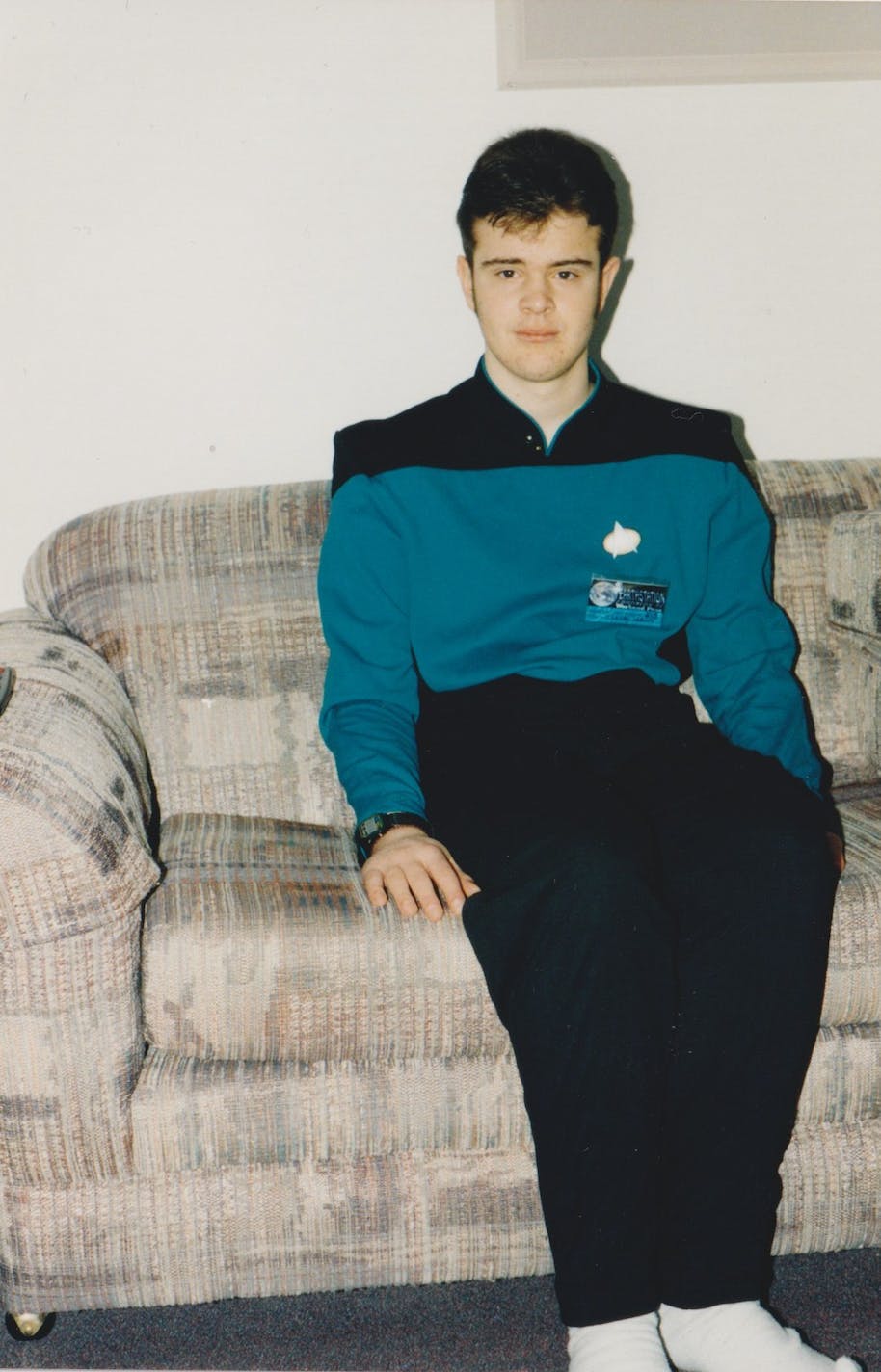
StarTrek.com
The day will come when people roughly my age will be the last to remember a time before the Internet; whose formative years were divided between analog and digital experience. 1994 was an important hinge year, right before the mainstreaming of the Internet proceeded in earnest. The provenance of the script was digital; but for me it was a stack of paper, which I then physically shared with friends. My anticipation of the film was undeterred by any contact with a digital echo chamber of commentary, which was probably for the best . . . in that way I was unspoiled. Even though I knew the film’s story, I was relatively free to form my own opinion of it, and for that I remain grateful.
I often wonder how many other people’s experiences of Generations were shaped by that leaked script. Impossible to say, but as Ben and I lined up for the premiere, I remember seeing a man in a T-shirt bearing James T. Kirk’s last words: “It was fun.” I’m guessing he read it too.
Murray Leeder (he/him) holds a Ph.D. from Carleton University and is a Research Affiliate at the University of Manitoba. His research interests include the supernatural in media, horror film, Bob Dylan and, unsurprisingly, Star Trek.

